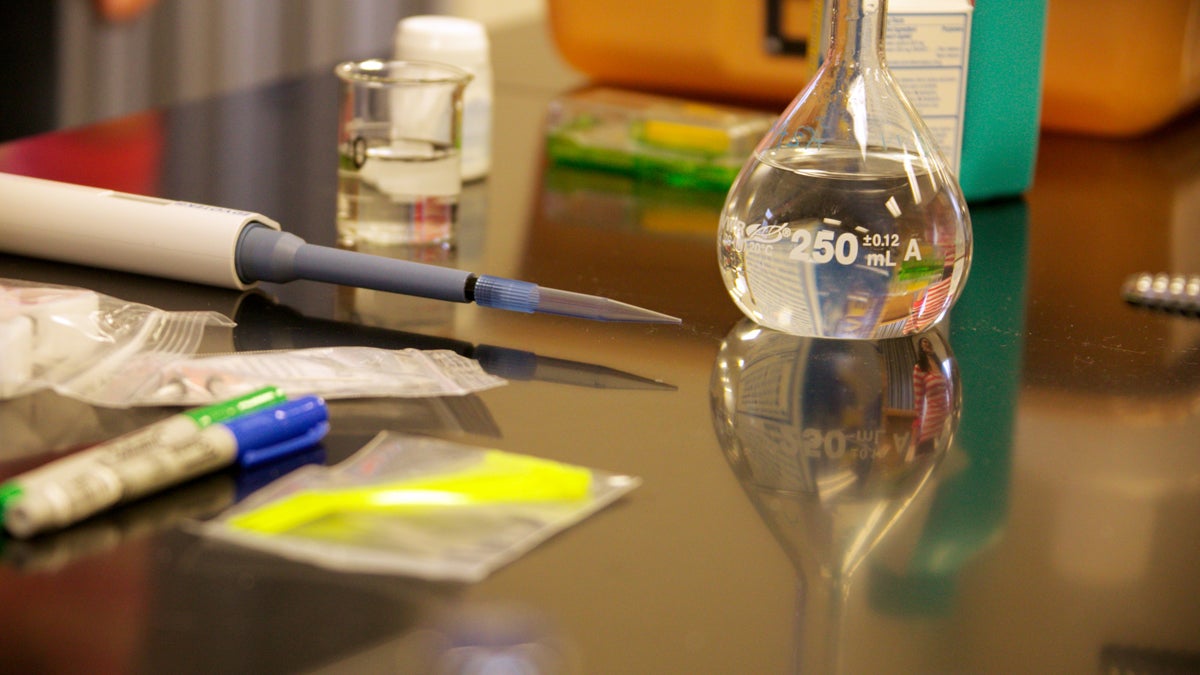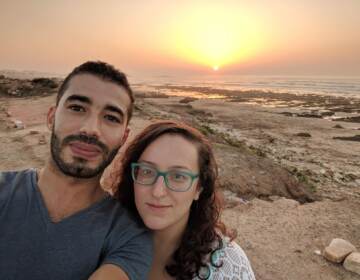Downingtown high-schoolers to launch science experiment into space
Listen
On Thursday, a team of students at the STEM Academy in Downingtown, Pa., prepared a science experiment bound for the International Space Station. (Nathaniel Hamilton/for NewsWorks)
A science experiment designed by high school students in Downingtown, Pa., is heading to the International Space Station next month.
The experiment, housed in a glow stick-esque tube of simulated stomach acid, is to determine whether common medications dissolve the same way in space as they do on earth. Microgravity impacts bodily systems, too.
“NASA has certainly done a lot of studies with bone mass and with how the human body reacts,” said Justin Staub, one of two teachers at Downingtown STEM Academy who helped lead the project. “But students were really curious about what happens if you get a cold? What happens if you get the flu?”
The voyage to the International Space Station isn’t the work of NASA, however.
The experiment from Downingtown is one of 23 student projects hitching a ride on a commercial resupply mission scheduled for Dec. 15. The nationwide initiative to launch science projects into space is the work of a Maryland-based nonprofit.
“This is the era of commercial human spaceflight — and all these students recognize they are part of history,” said Jeff Goldstein, center director at the National Center for Earth and Space Science Education (NCESSE).
Downingtown STEM Academy and a high school near Erie, Pa., are the first Pennsylvania schools to participate in the 3-year-old program.
Some 500 Downingtown high-schoolers chipped in, designing experiments in small groups.
The winning project, from a team of eight current sophomores, was selected from 65 proposals, and cleared by NASA’s toxicology office.
“The carrot is getting an experiment to fly to the international space station,” said NCESSE’s Goldstein. “But the idea is to create an absolutely authentic, multifaceted environment so that students can be immersed in research and see research for themselves.”
Goldstein says the goal is to inspire the next generation of scientists and engineers.
The vials of pills and “stomach acid” will be in space for six weeks. Astronauts will conduct the experiment according to student directions. Back on earth, the Downingtown team will do the same experiment, ultimately comparing results after Orbital Sciences’ Cygnus spacecraft returns home.
Participation in the NCESSE program is a first for Pennsylvania, but an experiment from a high school in Pennsauken, N.J., returned from space late last year.
WHYY is your source for fact-based, in-depth journalism and information. As a nonprofit organization, we rely on financial support from readers like you. Please give today.




